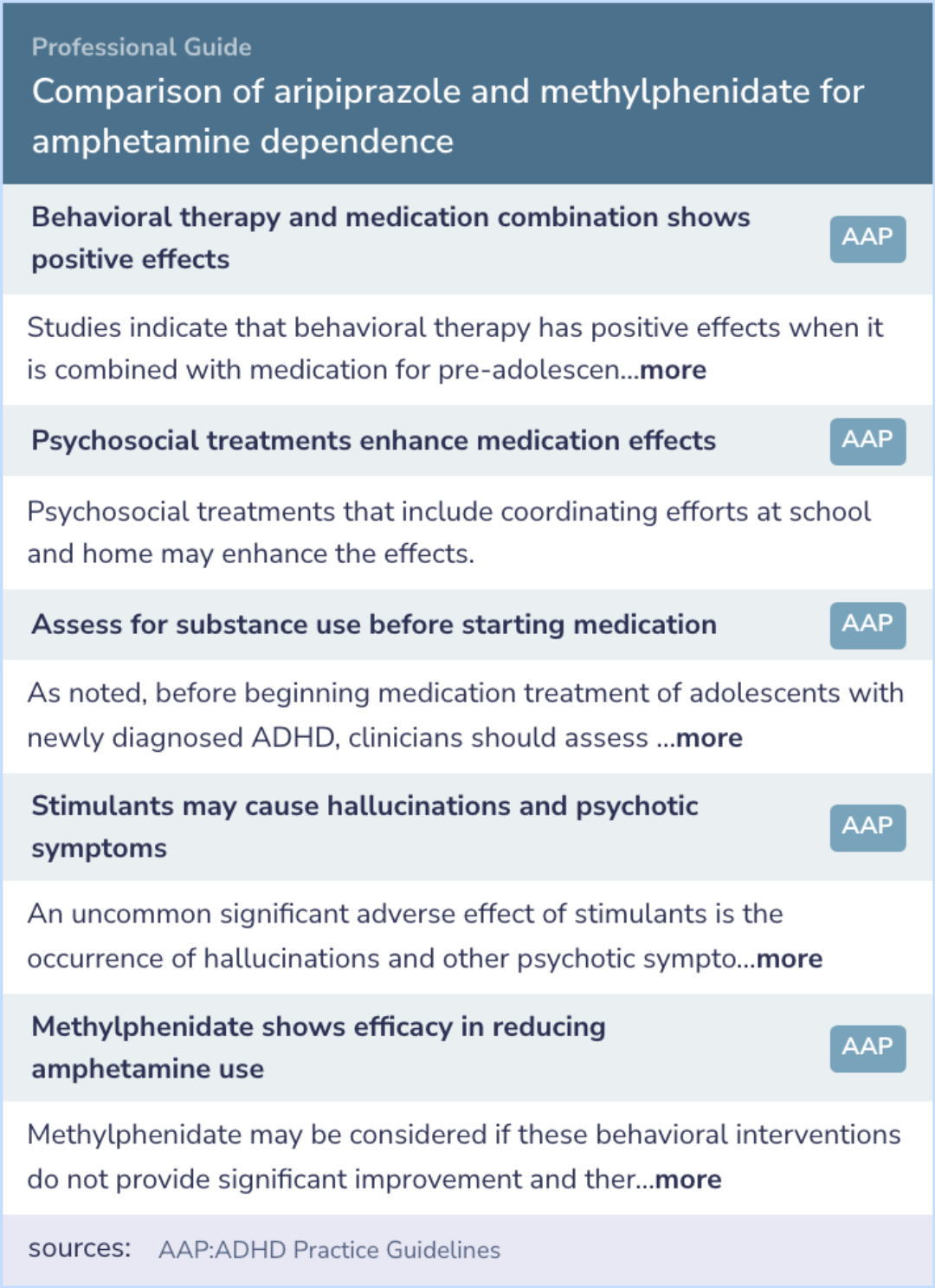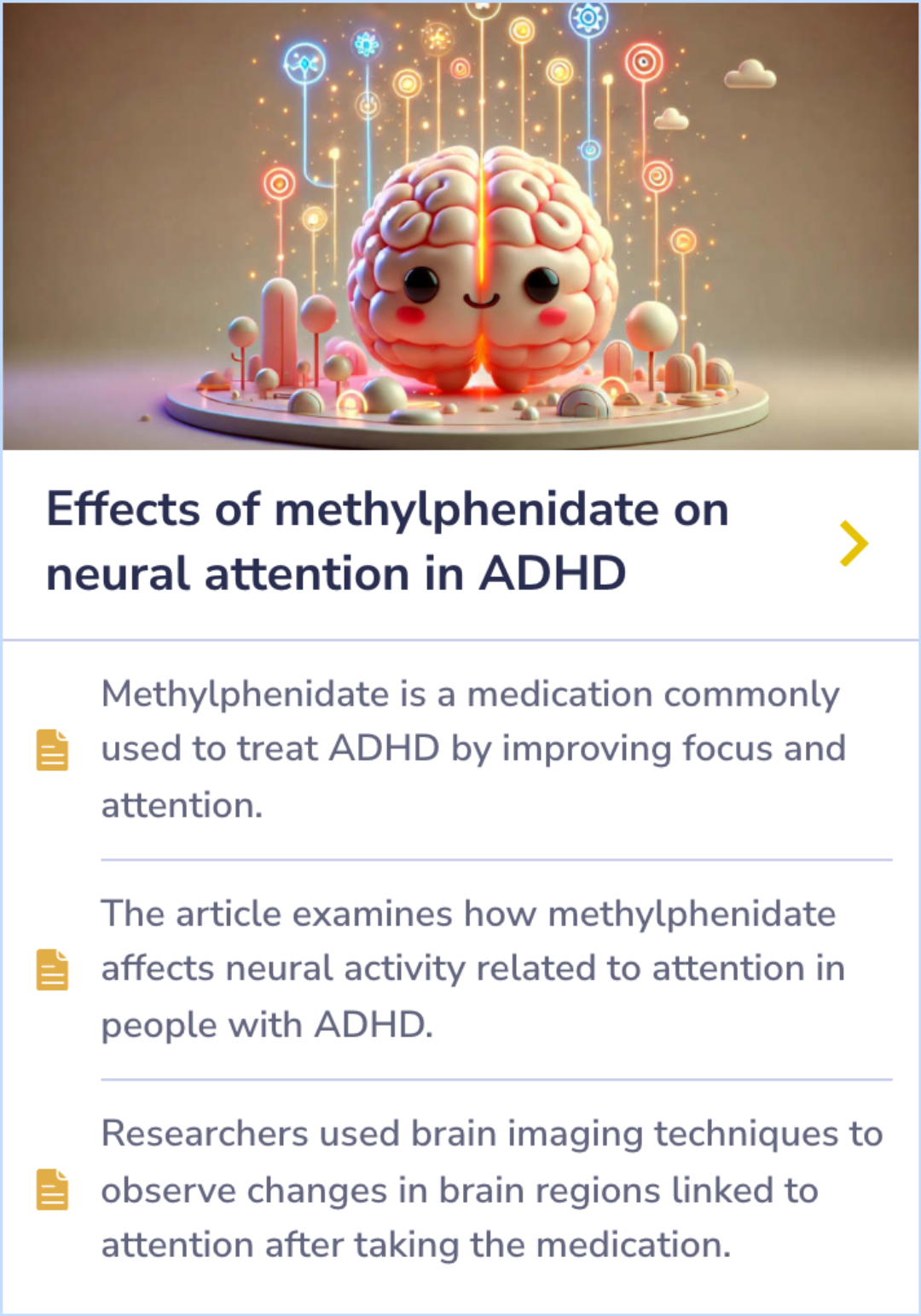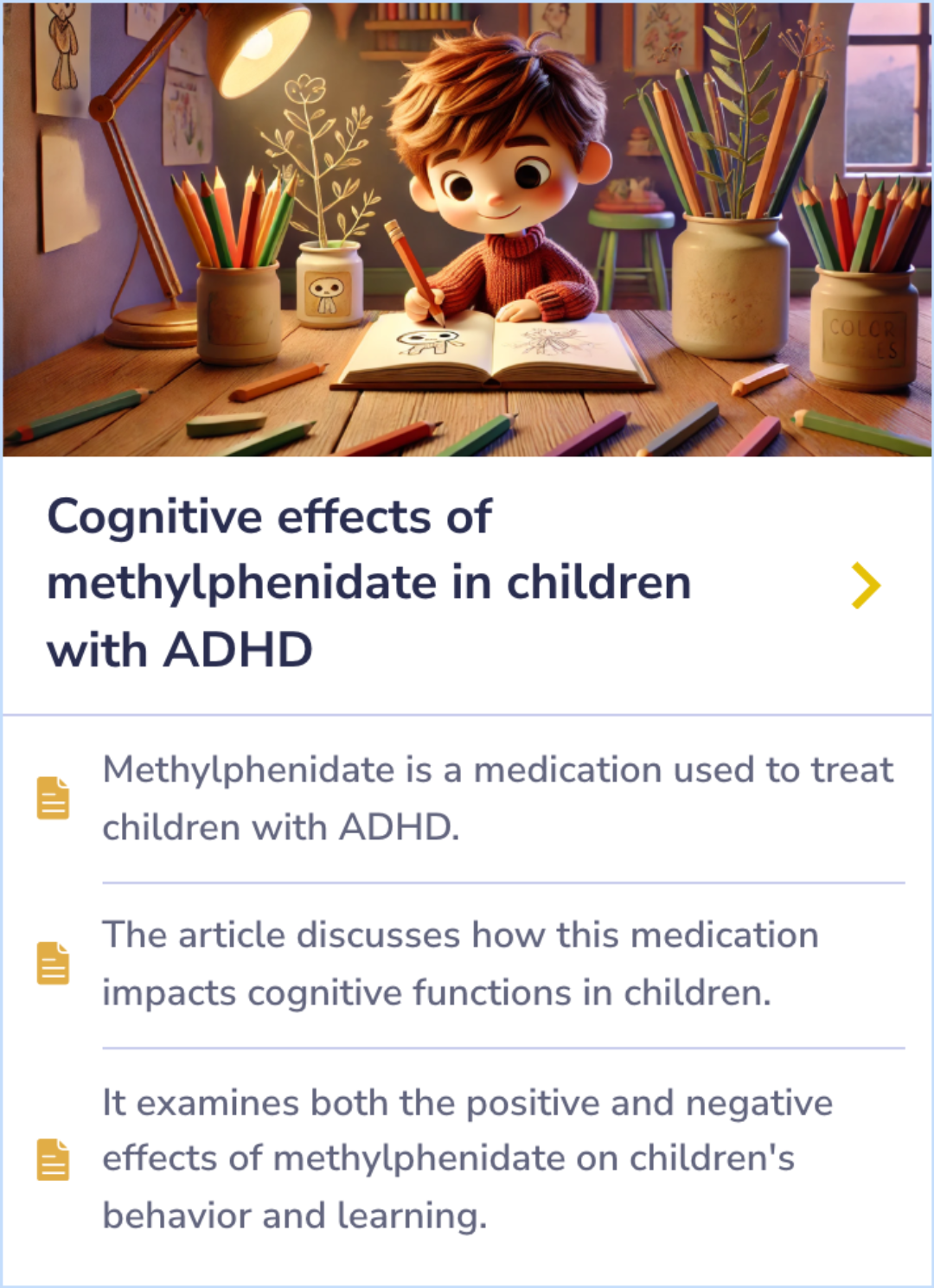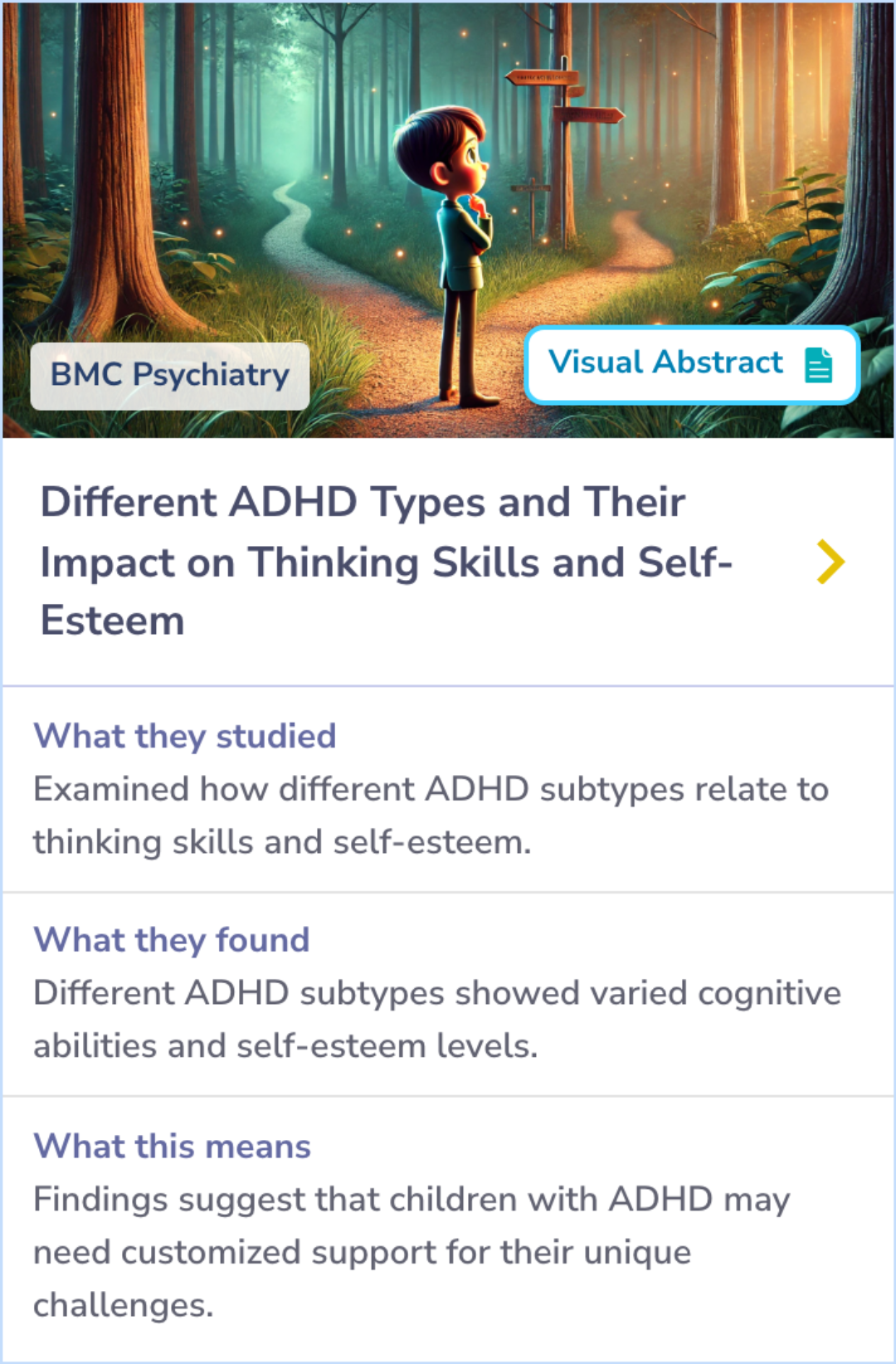Ritalin Paper Database
Visual Abstract
A comparison of aripiprazole, methylphenidate, and placebo for amphetamine dependence
Comparison of aripiprazole and methylphenidate for amphetamine dependence
October 17, 2024
author
Tiihonen J, Kuoppasalmi K, Föhr J, Tuomola P, Kuikanmäki O, Vorma H, Sokero P, Haukka J, Meririnne E
journal
Am J Psychiatry
Date Published
January 2007
Why link to a visual abstract?
What is a visual abstract?
Original
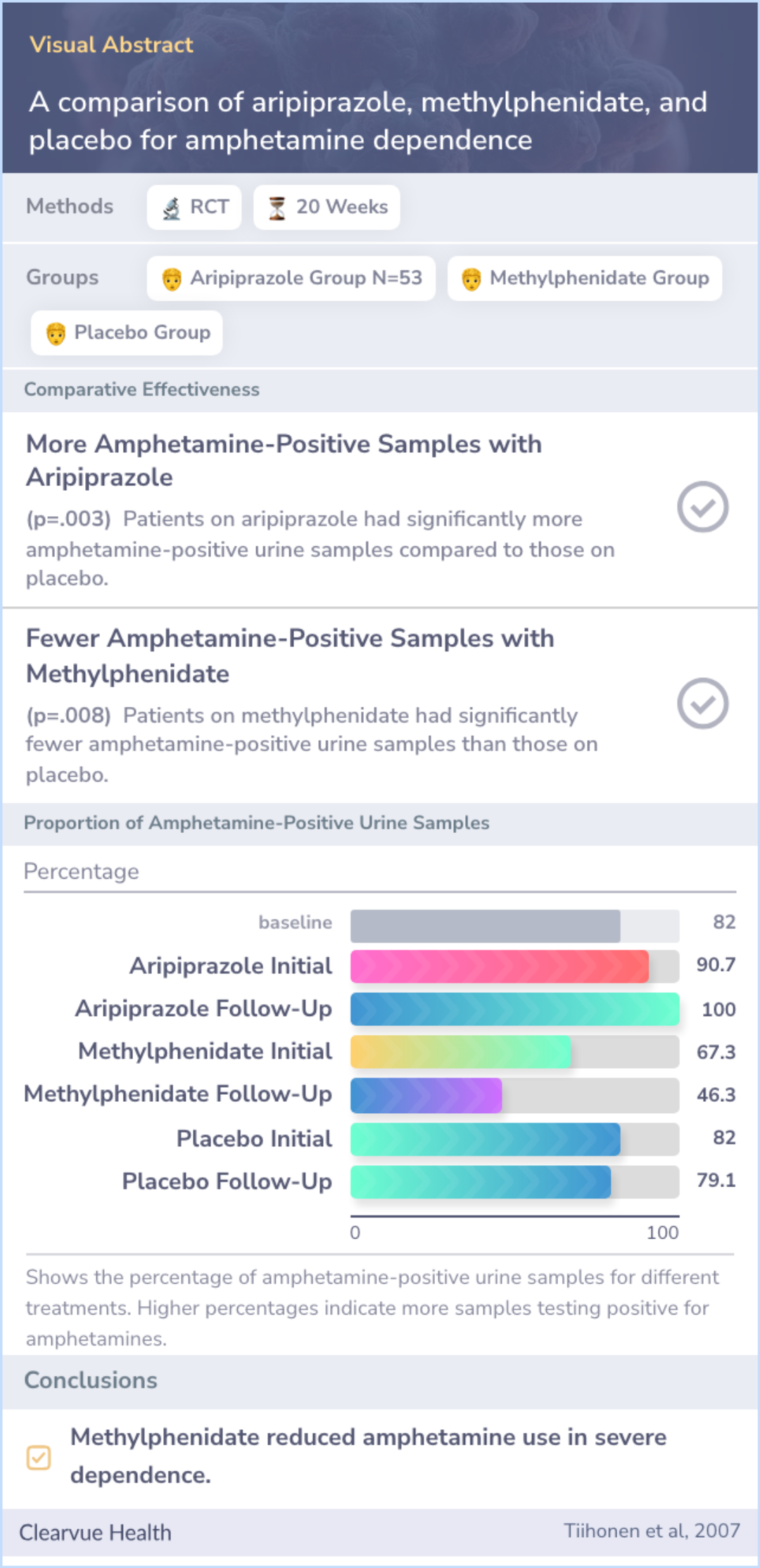
Study Summary
🔬
What They Studied
The researchers studied the effectiveness of aripiprazole and slow-release methylphenidate for treating severe amphetamine dependence.
💡
What They Found
They found that slow-release methylphenidate reduced amphetamine use, while aripiprazole did not.
📚
What This Means
These findings show that slow-release methylphenidate aligns with current evidence indicating it can be effective for treating severe amphetamine dependence, while aripiprazole is not recommended.
Study Summary
Study Overview
A recent study explored treatments for amphetamine dependence, focusing on whether certain medications could help reduce drug use in individuals with severe addiction. The study evaluated methylphenidate and aripiprazole, with promising results for methylphenidate. These findings could reshape treatment approaches and offer new hope for those battling addiction.
The study highlights the potential of methylphenidate as a valuable treatment option, unlike aripiprazole, which did not show the same efficacy.
The study highlights the potential of methylphenidate as a valuable treatment option, unlike aripiprazole, which did not show the same efficacy.
Abstract: background
Problems related to illegal amphetamine use have become a major public health issue in many developed countries. To date, evidence on the effectiveness of psychosocial treatments has remained modest, and no pharmacotherapy has proven effective for am...more

Effective Treatment
"These results indicate that methylphenidate treatment is associated with a statistically significant reduction in intravenous amphetamine use when compared with placebo."
Real-World Relevance
"Therefore, this trial was more of an effectiveness study, rather than an efficacy study, and these results can be generalized to real-life settings."
Challenging Current Treatments
"Problems related to illegal amphetamine use have become a major public health issue in many developed countries."
Study Summary
Methods
The study enrolled 53 participants meeting DSM-IV criteria for intravenous amphetamine dependence. They were randomly assigned to receive aripiprazole (15 mg), slow-release methylphenidate (54 mg), or a placebo for 20 weeks.
The trial was halted early due to interim analysis. The primary outcome was the proportion of amphetamine-positive urine samples, analyzed using intention-to-treat methodology.
The trial was halted early due to interim analysis. The primary outcome was the proportion of amphetamine-positive urine samples, analyzed using intention-to-treat methodology.
Abstract: methods
Individuals meeting DSM-IV criteria for intravenous amphetamine dependence (N=53) were randomly assigned to receive aripiprazole (15 mg/day), slow-release methylphenidate (54 mg/day), or placebo for 20 weeks. The study was terminated prematurely due ...more

Study Summary
Results
The study revealed significant differences between the groups. Aripiprazole-treated patients had more amphetamine-positive urine samples than the placebo group. Conversely, those on slow-release methylphenidate showed fewer positive samples compared to the placebo.
These findings suggest that aripiprazole may worsen conditions, while methylphenidate helps reduce amphetamine use among participants.
These findings suggest that aripiprazole may worsen conditions, while methylphenidate helps reduce amphetamine use among participants.
Abstract: results
Patients allocated to aripiprazole had significantly more amphetamine-positive urine samples than patients in the placebo group (odds ratio=3.77, 95% CI=1.55-9.18), whereas patients who received methylphenidate had significantly fewer amphetamine-pos...more
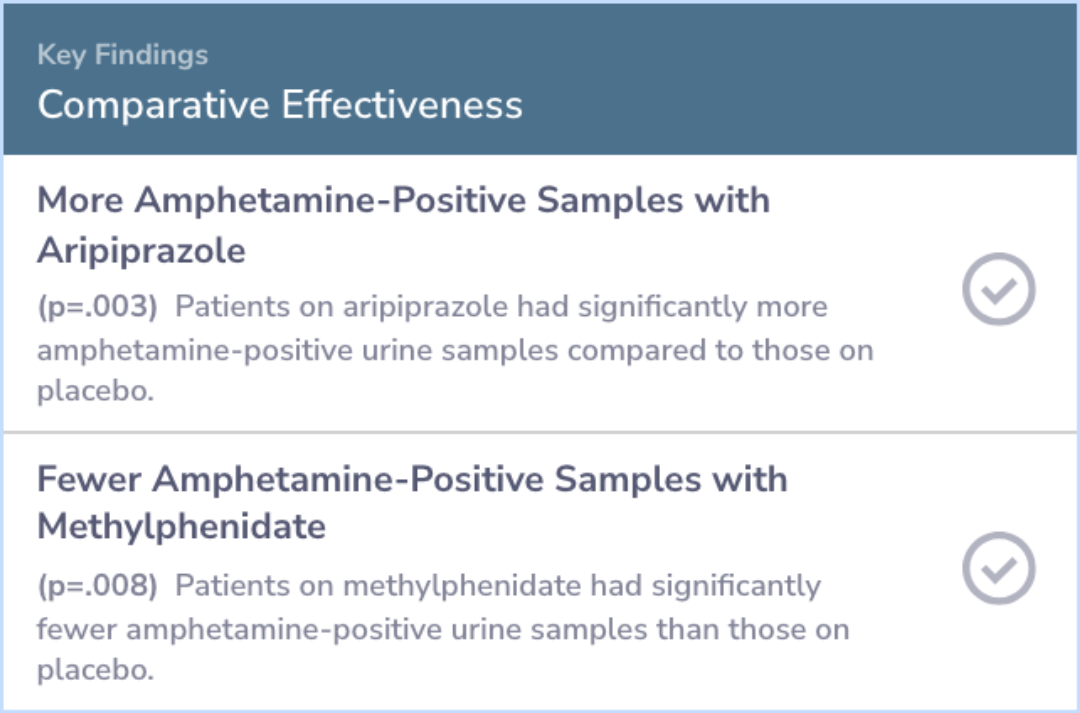
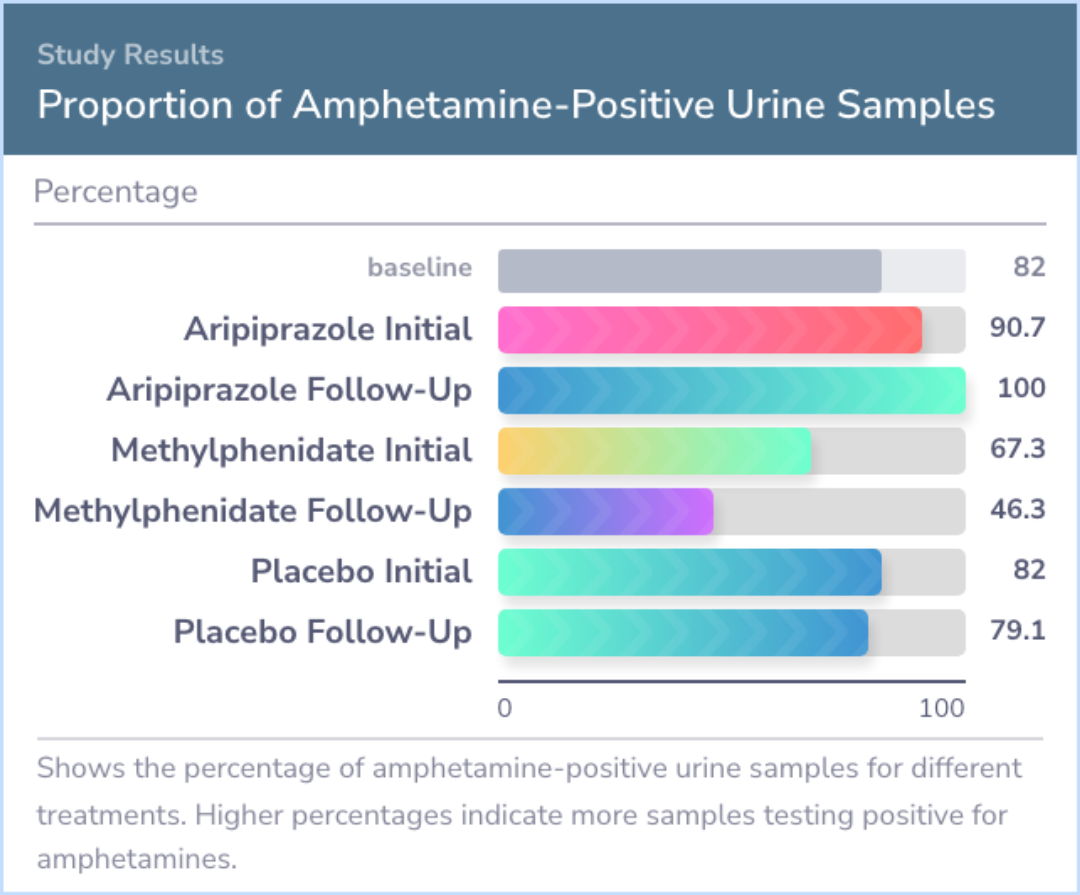
Study Summary
Conclusions
The study concluded that slow-release methylphenidate effectively reduces drug use in patients with severe amphetamine dependence.
However, aripiprazole raised concerns, as it seemed to increase amphetamine use. The findings suggest a promising future for methylphenidate, while caution is advised for aripiprazole.
However, aripiprazole raised concerns, as it seemed to increase amphetamine use. The findings suggest a promising future for methylphenidate, while caution is advised for aripiprazole.
Abstract: conclusions
Methylphenidate is an effective treatment for reducing intravenous drug use in patients with severe amphetamine dependence.
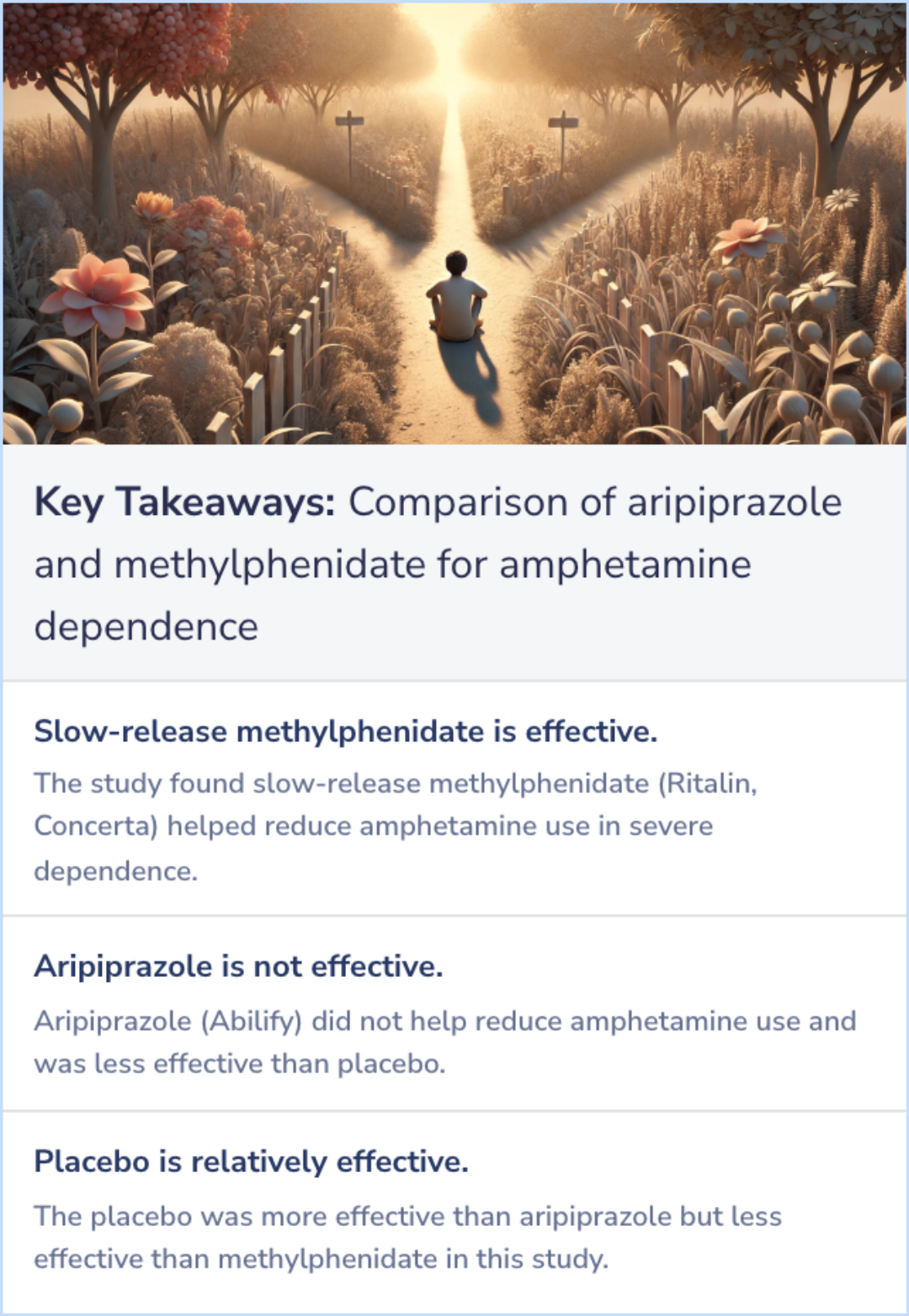
Background Information
Patient Guide
👨⚕️
Primary Uses of Methylphenidate
FDA-approved for treating ADHD in both children and adults, and as a second-line treatment for narcolepsy.
🧠
Mechanism of Action
Methylphenidate blocks the reuptake of norepinephrine and dopamine, increasing their concentration in the synaptic cleft.
🚨
Abuse Potential and Monitoring
Schedule II classification of methylphenidate necessitates monitoring for signs of abuse and dependence.
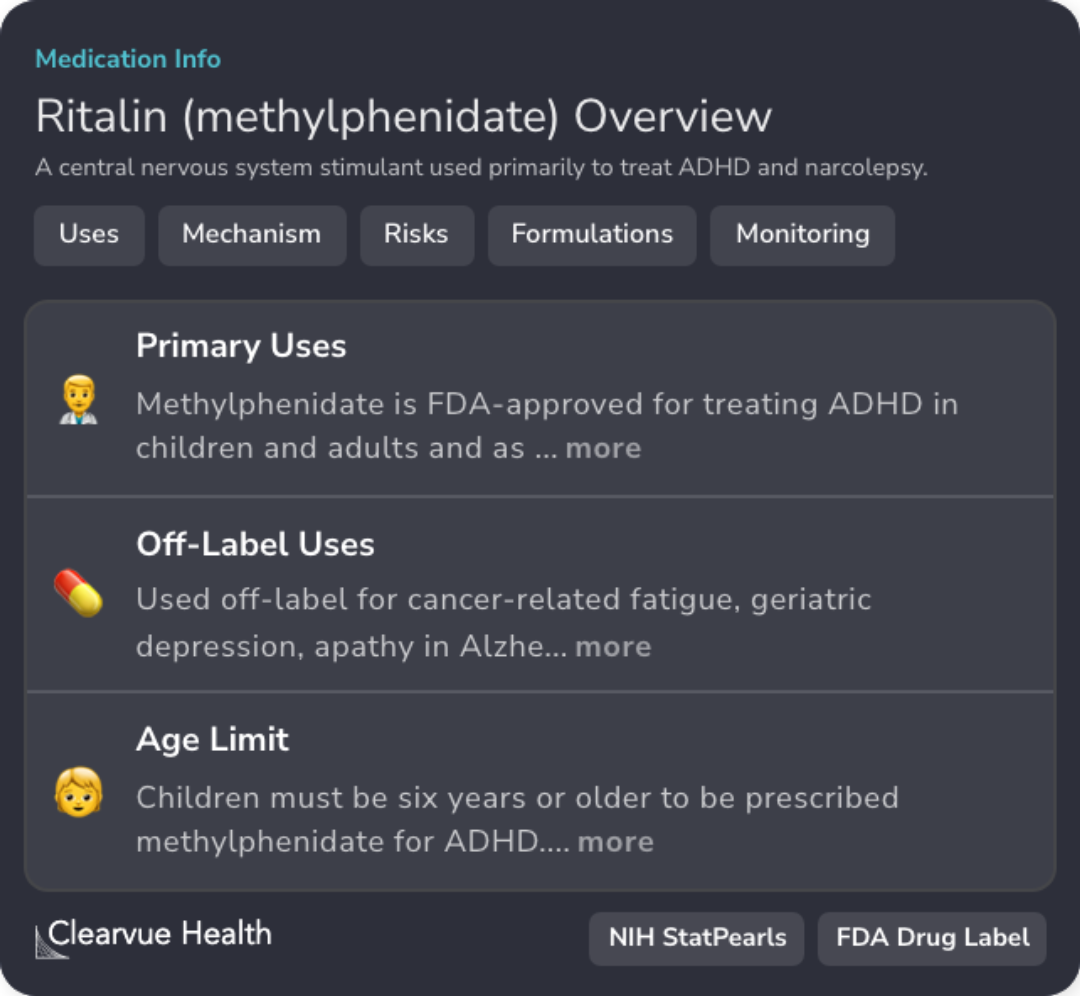
Professional Guide
Expert Opinion: Comparison of aripiprazole and methylphenidate for amphetamine dependence
The findings support methylphenidate as a recommended first-line treatment for preschool children with ADHD. Behavioral therapy should precede medication when necessary.
Combining therapy and medication yields positive outcomes in pre-adolescents. Substance use assessments are critical before starting ADHD medications in adolescents, as stimulants can sometimes induce hallucinations or psychosis.
Combining therapy and medication yields positive outcomes in pre-adolescents. Substance use assessments are critical before starting ADHD medications in adolescents, as stimulants can sometimes induce hallucinations or psychosis.
Evidence Summary
Effects of Methylphenidate on Brain Activity in ADHD
Researchers studied how methylphenidate, an ADHD medication, affects brain activity related to attention.
They used brain imaging to observe changes in attention-related regions after individuals with ADHD took the medication.
Methylphenidate is known for improving focus and attention in people with ADHD.
The study specifically examined changes in brain activity in these attention-related areas.
They used brain imaging to observe changes in attention-related regions after individuals with ADHD took the medication.
Methylphenidate is known for improving focus and attention in people with ADHD.
The study specifically examined changes in brain activity in these attention-related areas.
Evidence Summary
Examining Aripiprazole and Methylphenidate Efficacy for Amphetamine Dependence
Aripiprazole and methylphenidate are medications explored for amphetamine dependence. Aripiprazole led to more amphetamine-positive urine samples, suggesting less effectiveness. In contrast, methylphenidate resulted in fewer positive samples, indicating potential effectiveness. This parallel study examines cognitive effects of methylphenidate in children, noting its dual impacts on attention and behavior.
Evidence Summary
Examining Cognitive and Self-Esteem Differences in ADHD Subtypes
ADHD is a major neurodevelopmental disorder with varied symptoms and cognitive deficits. Researchers explored cognitive differences among ADHD subtypes using WISC-IV scores. ADHD-I showed the poorest cognitive profile, while ADHD-H scored the highest. Cognitive abilities correlated negatively with inattention and positively with hyperactivity. Self-esteem also varied by subtype, with ADHD-H reporting the highest levels.
